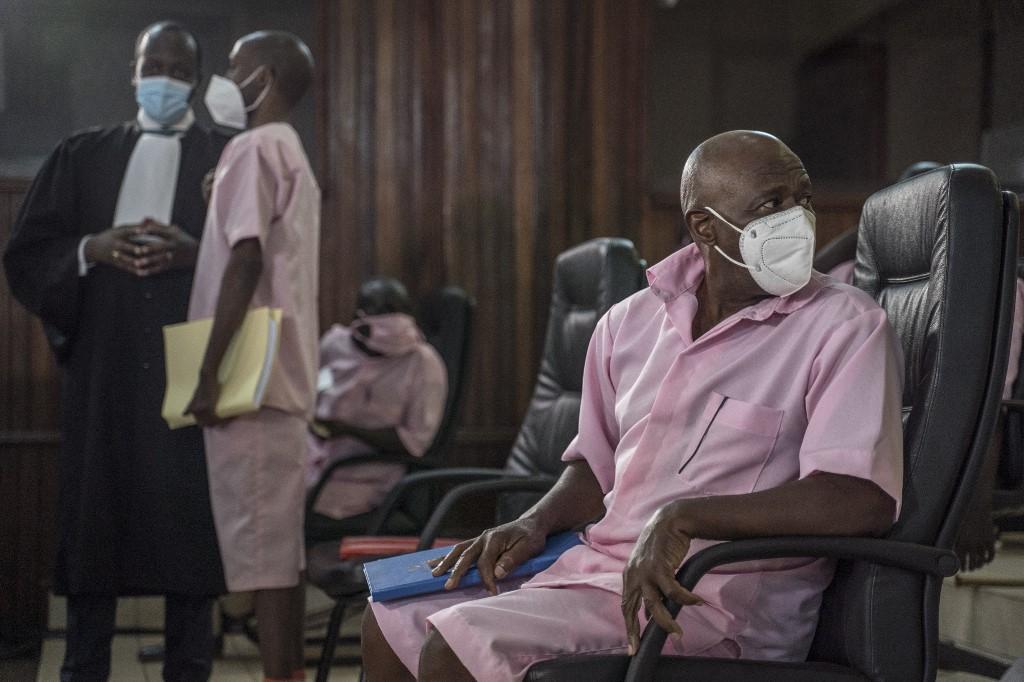Court upholds 25-year sentence for ‘Hotel Rwanda’ hero
Rusesabagina is credited with saving more than 1,200 lives during the 1994 genocide, in which 800,000 people were slaughtered but was later treated as an enemy of the state.
Just In
Rwanda’s Court of Appeal on Monday upheld a 25-year prison term against ailing “Hotel Rwanda” hero Paul Rusesabagina on terrorism charges, rejecting a prosecution appeal to increase the penalty to life.
The fiercely outspoken critic of President Paul Kagame, who has been in custody for almost 600 days, was convicted last year after a trial his family and supporters branded a sham that was plagued with irregularities.
“Since he is a first-time offender, the court finds that his sentence should not be increased, because the 25 years he was given is in accordance with the weight of his crimes, and the court maintains his sentence,” said judge Francois Regis Rukundakuvuga.
State prosecutors had appealed the original sentence, saying the punishment against the former Kigali hotel manager was too lenient and should be increased to life.
His family, who have campaigned globally for his release, are now warning that the 67-year-old is at risk of dying behind bars because of his poor health.
The court also ruled Monday on appeals against sentences meted out to Rusesabagina’s 20 co-defendants, who were originally jailed for between three and 20 years. Most were upheld, but at least one was reduced.
All the accused were convicted in September 2021 of backing an armed rebel group, the National Liberation Front (FLN), blamed for a spate of attacks in Rwanda in 2018 and 2019 that killed nine people.
Rusesabagina – also a Belgian citizen with permanent US residency – denied the allegations against him and boycotted almost all court proceedings, with his family insisting he was a political prisoner.
He was not in court for Monday’s ruling, and an empty chair symbolising his absence was placed in a row where the other defendants, clad in pink prison uniforms, were sitting.
Washington and Brussels said after the original verdict that they were concerned that Rusesabagina was denied a fair trial.
Rusesabagina is credited with saving more than 1,200 lives during the 1994 genocide, in which 800,000 people – mostly Tutsis, but also moderate Hutus – were slaughtered.
But, in the years after Hollywood made him an international celebrity, a more complex image emerged of a staunch government critic whose tirades against Kagame led him to be treated as an enemy of the state.
He was arrested in August 2020 when a plane he believed was bound for Burundi landed instead in Kigali after what his family has described as a kidnapping.
‘Urgent need of medical attention’
Last month, the UN Working Group on Arbitrary Detention concluded that Rusesabagina had been “abducted” when he was arrested and that his detention was “arbitrary”, calling for his immediate unconditional release.
His daughter Carine Kanimba said her father had suffered a stroke in prison and now has partial facial paralysis and was being deprived of medication.
“He is sick and in urgent need of medical treatment. Paul Kagame is going to kill him if we don’t do something. Kagame wants to scare off any future critics of his 22-year dictatorship,” she told AFP in Brussels by email shortly before the ruling.
His family says he was tortured and starved in the first few days after his arrest, and held in solitary confinement for long periods.
Rusesabagina became the most famous Rwandan globally after American actor Don Cheadle dramatised his deeds during the genocide in the 2004 Hollywood film “Hotel Rwanda”.
He later used his celebrity to denounce rebel-leader-turned-president Kagame, who has been in power since 1994 and is accused by critics of crushing opponents and ruling through fear.
Rusesabagina left Rwanda in 1996, living in Belgium and then the US before his arrest in 2020.
Ahead of the original verdict, Kagame dismissed criticism of the case, saying Rusesabagina was in the dock not because of his fame but over the lives lost “because of his actions”.
Subscribe to our newsletter
To be updated with all the latest news and analyses daily.
